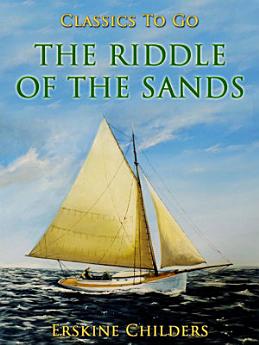The Riddle of the Sands
Jan 2016 · Otbebookpublishing
Ebook
305
Pages
family_home
Eligible
info
reportRatings and reviews aren’t verified Learn More
About this ebook
Robert Erskine Childers DSC (25 June 1870 – 24 November 1922), universally known as Erskine Childers, was the author of the influential novel The Riddle of the Sands and an Irish nationalist who smuggled guns to Ireland in his sailing yacht Asgard. He was executed by the authorities of the nascent Irish Free State during the Irish Civil War. "The Riddle of the Sands: A Record of Secret Service" is a 1903 novel by Erskine Childers. The book, which enjoyed immense popularity in the years before World War I, is an early example of the espionage novel and was extremely influential in the genre of spy fiction. It has been made into both a film and TV film. (Excerpt from Wikipedia)
About the author
Erskine Childers, born Robert Erskine Childers in 1870 in London, was a multifaceted figure whose life spanned the realms of literature, politics, and espionage. Educated at Trinity College, Cambridge, Childers initially pursued a career in the British civil service, but his life took a dramatic turn as he became increasingly involved in Irish nationalist causes.Childers' literary contributions, though few, were marked by a keen sense of adventure and a deep understanding of geopolitical tensions, reflecting his own experiences and insights. His works are often credited with pioneering the modern spy novel, influencing contemporary writers like John le Carré and Ian Fleming.A fervent advocate for Irish independence, Childers' political activities were as compelling as his literary endeavors. He played a crucial role in the gun-running operation to arm the Irish Volunteers in 1914, an act that cemented his status as a revolutionary. His commitment to the cause led him to serve as a key negotiator during the Anglo-Irish Treaty talks in 1921, although he later opposed the treaty, aligning himself with the anti-treaty forces during the Irish Civil War.Childers' life was not without controversy. His shift from a British loyalist to an Irish nationalist drew both admiration and ire, making him a polarizing figure. His eventual capture and execution by the pro-treaty forces in 1922 only added to his mystique, transforming him into a martyr for the Irish republican cause.Erskine Childers' legacy is a tapestry of daring exploits, literary innovation, and unwavering dedication to his ideals. His life story continues to captivate modern readers, offering a vivid portrait of a man who navigated the turbulent waters of early 20th-century politics with both pen and sword.
Rate this ebook
Tell us what you think.
Reading information
Smartphones and tablets
Install the Google Play Books app for Android and iPad/iPhone. It syncs automatically with your account and allows you to read online or offline wherever you are.
Laptops and computers
You can listen to audiobooks purchased on Google Play using your computer's web browser.
eReaders and other devices
To read on e-ink devices like Kobo eReaders, you'll need to download a file and transfer it to your device. Follow the detailed Help Center instructions to transfer the files to supported eReaders.








